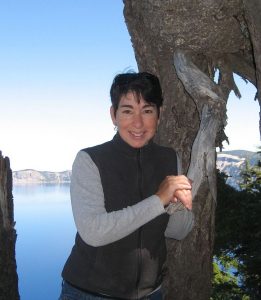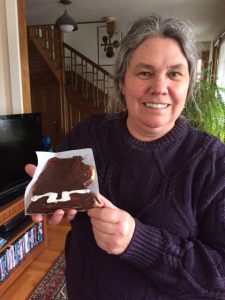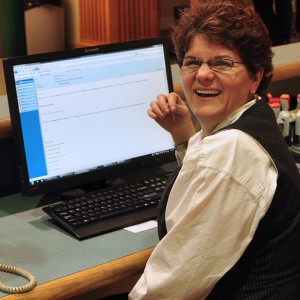 Thank you for the opportunity to share some thoughts about the Sustainability RT and the importance of its work today.
Thank you for the opportunity to share some thoughts about the Sustainability RT and the importance of its work today.
I was a member of ALA Council in 2015 when we passed the “Resolution on the Importance of Sustainable Libraries,” and I was happy to support it. At the time, I associated the idea of sustainability in libraries with green building, sustainable business practices, and, maybe, the idea that our move to a greater and greater reliance on digital content and information technology might be contributing to concerns such as use of electricity, e-waste, etc. It is fair to say that my appreciation for the importance of this resolution was not as expansive as it is today, but, also to be fair, we are living in a different world.
To me, the heart of this resolution is the idea that “libraries are uniquely positioned and essential to build the capacity of the communities they serve to be sustainable, resilient, and regenerative,” and the need for libraries to play that role has never been as important as it is today. I think it is telling that the Sustainability Round Table clearly drew on this vision for the role of libraries in communities in its January 2017 statement about our current situation when it focused not just on the environmental impact of the directions signaled by the new Administration, but on the way librarians work with their communities “to build community resilience as we all face an uncertain future together.”
That future has only become more uncertain in the weeks since that statement was made, and, as I write this, the Trump Administration has just released a proposed budget that decimates our capacity, as a society, to support the arts, libraries, museums, public education, and the basic and applied science critical to a sustainable future. Librarians can, and must, not only model sustainable practices in their work, and provide the information services and educational programs that will help to spread broader awareness of how to pursue a sustainable future for one’s self and our planet, but we must radically expand our vision of the library’s role in building a resilient community, whether that community is a school, a town, a city, or a college. In a world where senior government officials question the scientific consensus around issues such as global warming and climate change, the mandate to expand our educational and advocacy role around sustainability is clear.
Here at home, we have a great example of a library making a commitment to sustainability in Chicago Public Library. In 2012, the Urban Libraries Council recognized the work that CPL had done to “[make] green routine,” in its buildings and its business practices. More recently, CPL has collaborated with Hive Chicago to promote “The Sustainability Hack” an education and outreach program aimed at young adults. What this tells us is that the library has powerful partners in the community who want to help us not only to pursue sustainability in our work, but to be part of broader discussions of how we promote a sustainability mindset among our kids and our communities. As an academic librarian, this points the way to new thinking about the “value of the academic library,” and the ways in which it can contribute to mission-centered commitments to sustainability, such as, in my case, the DePaul Sustainability Network.
There is one final lesson that I took from the sustainability resolution, and that is the importance of energizing the connection between ALA Chapters and Big ALA. The Council of the New York Library Association passed its resolution on sustainability in 2014, and the launch of the NYLA Sustainability Initiative is inspiring. Throughout this election, I have stressed the capacity that ALA has to energize a national, grassroots effort that engages our members at the local, state, and national levels, and the events of the past 7 weeks have only further demonstrated how important that is. Sustainability is one policy area where we have a great example of how that can be done, and we should build on it.
I have made a commitment throughout my campaign to focus our efforts as an Association on the critical challenges before us, and empower our Association and its members to play the leading role they must in defense of our core values, and our rights and responsibilities as information professionals and community members. I hope you’ll take the opportunity to learn more about me and about my candidacy at (walter4ala.org), and I would welcome your support.
There is important work for us to do, and, with your vote, we can do it together




